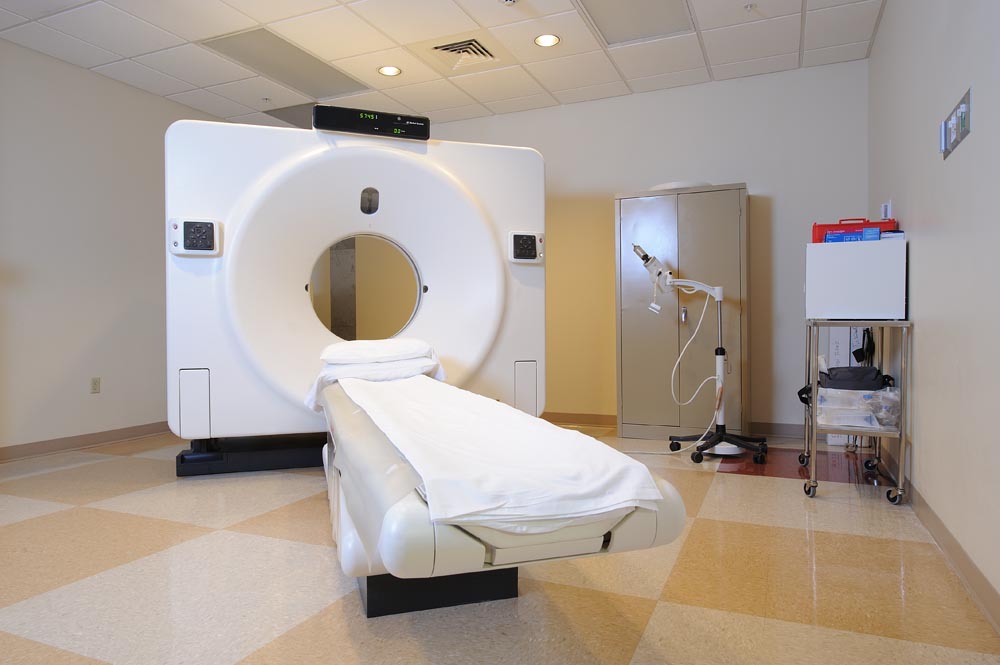CT (Computed Tomography), also known as CAT scan, is a safe and painless exam that uses x-ray to obtain detailed, cross-sectional images of your body. CT scans are made when a rapidly spinning x-ray tube takes a series of snapshots (slices) of your organs and structures that are not able to be seen clearly on conventional x-rays. Our radiation dose reduction software uses raw data from these slices to produce a cross-sectional picture of the area being imaged and keeps radiation exposure to an absolute minimum. CT scanning has the unique ability to image a combination of soft tissue, bone and blood vessels. CT is one of the best tools for studying the lungs and abdominal area.

What to Expect
Most CT scans are between 15-45 minutes. During the exam, you will be lying down on a table. The x-ray tube will rotate around the table, taking pictures from all angles. The images taken will then be sent to a radiologist for interpretation. The radiologist will want to compare these images to any previous studies you might have had. Please let us know if you have had any previous CT exams before. A final report will be sent to your referring provider.
When your exam is finished, you should feel no side effects and can resume your normal activities. If you received a contrast agent, please drink plenty of fluids.
How to Prepare
Preparation for a CT scan is different from one exam to another, depending on what part of the body is being imaged. Some exams require you to drink an oral contrast agent beforehand, and others sometimes require an intravenous contrast injection through a vein in your arm. CT preparation is listed below:
- Abdomen/Pelvis: Sometimes required to drink an oral contrast prior to the exam. Nothing to eat or drink 4 hours prior to the exam. This exam might require IV contrast.
- Angiogram: Nothing to eat or drink 6 hours prior to your exam, except clear liquids.
- Myelogram: Nothing to eat after midnight the night before your procedure and only drink clear liquids. Notify us if you are on any blood thinners and please arrangements for a driver to take you home.
Please notify us if you have any allergies to iodine or contrast media injections.
Check with the CT technologist or radiologist if you have questions or concerns.
Important Note: If you are pregnant or think that you could be pregnant, you must notify your physician and the CT technologist at Mountain View Hospital prior to your CT exam.
Mountain View Hospital Imaging Center | Phone: 208-557-2887 | Fax: 208-557-2746




